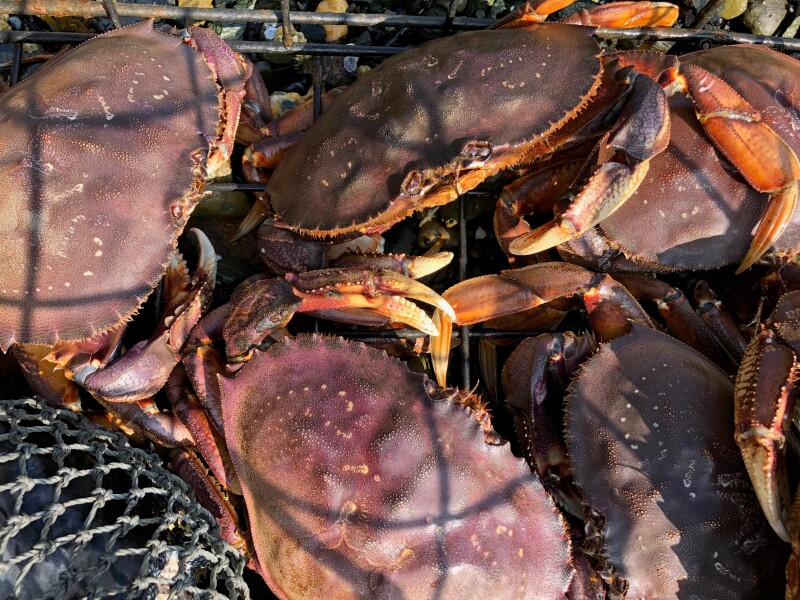California’s commercial Dungeness crab fleet has been dealt another setback. The California Department of Fish and Wildlife (CDFW) announced that the season will remain closed until at least December 31, 2024. The decision comes as part of ongoing efforts to mitigate risks to marine life, particularly humpback whales, which have been increasingly vulnerable to entanglement in crab fishing gear.
CDFW Director Charlton Bonham explained that this delay is based on recent surveys and entanglement data in a recent release. Observations from November showed high concentrations of humpback and blue whales in key fishing zones. Additionally, four confirmed entanglements of humpbacks in crab gear this year, along with nine more involving unidentified fishing equipment, have heightened concerns. These findings pushed the state to extend the closure under strict management protocols aimed at protecting endangered species.
Environmental groups have expressed support for the delay. Dr. Geoff Shester, California campaign director for Oceana, called the decision a necessary step to address what he termed “an ongoing and unacceptable wildlife tragedy along the West Coast.” His comments show the growing advocacy for stricter measures to reduce entanglements, first shared by KSBW Action News.
For crabbers, however, the decision brings mounting economic uncertainty. With the lucrative holiday season slipping further out of reach, many are grappling with the financial and emotional toll of another prolonged closure. The delay also ripples through the supply chain, impacting processors, distributors, and coastal communities reliant on the fishery.
The current situation emphasizes the delicate balance between marine conservation and the viability of California’s crab industry. CDFW plans to reassess conditions in mid-December, leaving a slim chance for a late season start. Until then, fishermen and stakeholders remain in limbo, navigating the intersection of science, policy, and livelihoods.
This season’s challenges have been building since October, when CDFW first signaled that whale entanglement risks could push back the start date for commercial crab fishing. The delay has spotlighted evolving conservation measures and the fishing industry’s efforts to adapt. While recreational crabbers were allowed to fish under specific restrictions, the commercial fleet has faced mounting uncertainty, highlighting the economic tension between conservation initiatives and traditional fishing practices.
Discussions around innovative solutions, like ropeless fishing gear, have further divided opinions within the industry. While some see it as a potential path forward, others consider the technology impractical in an already heavily regulated fishery. Following a trial earlier this year debates over implementation have intensified, leaving fishermen grappling with how to balance sustainability with financial viability.
CDFW has cited a rise in whale entanglements over recent years, but the commercial Dungeness crab fishery remains a focal point in California’s broader conservation efforts. As delays extend into the peak holiday season, the stakes grow higher for fishermen and coastal communities dependent on this industry.







